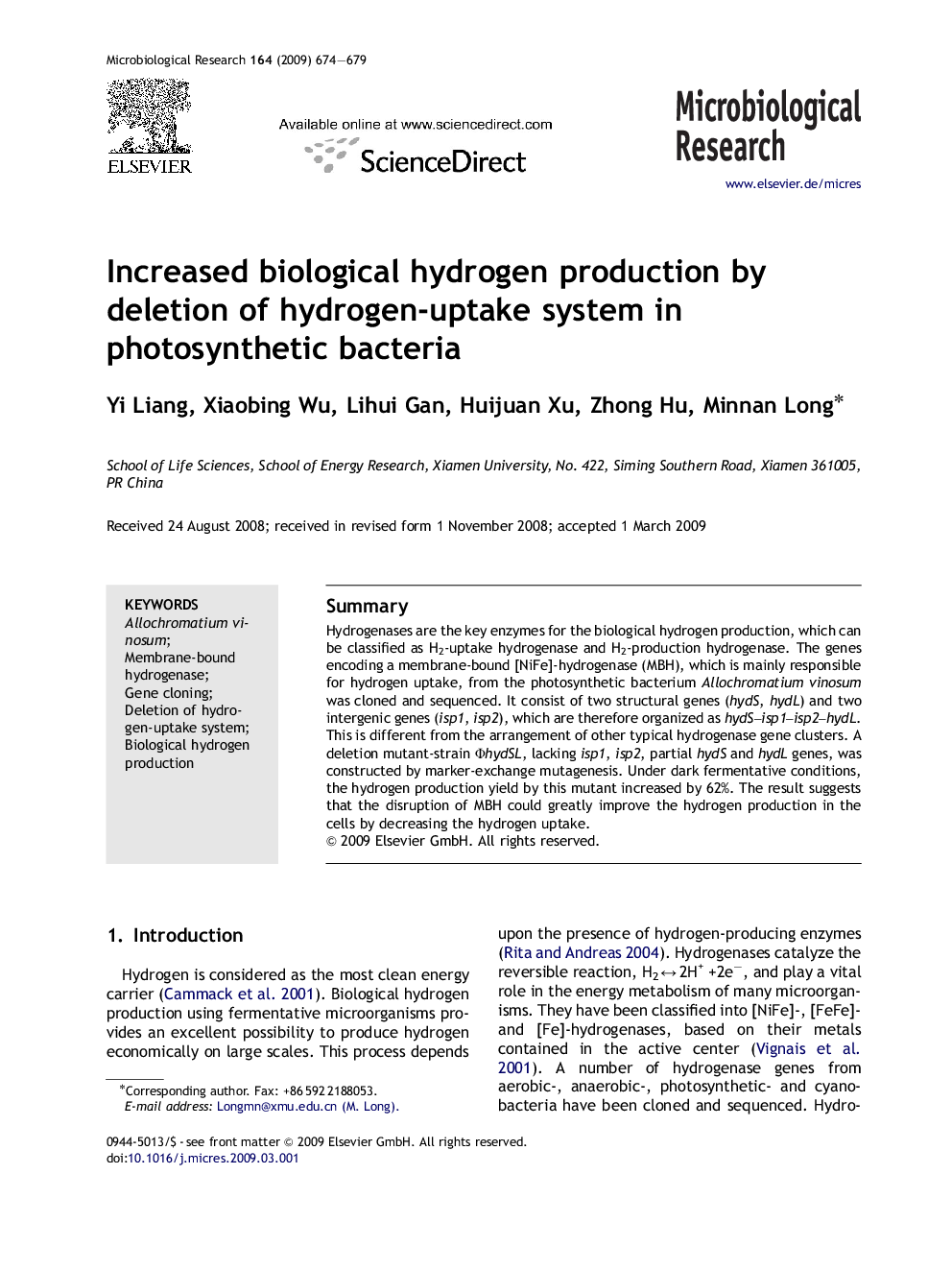| Article ID | Journal | Published Year | Pages | File Type |
|---|---|---|---|---|
| 2092882 | Microbiological Research | 2009 | 6 Pages |
SummaryHydrogenases are the key enzymes for the biological hydrogen production, which can be classified as H2-uptake hydrogenase and H2-production hydrogenase. The genes encoding a membrane-bound [NiFe]-hydrogenase (MBH), which is mainly responsible for hydrogen uptake, from the photosynthetic bacterium Allochromatium vinosum was cloned and sequenced. It consist of two structural genes (hydS, hydL) and two intergenic genes (isp1, isp2), which are therefore organized as hydS–isp1–isp2–hydL. This is different from the arrangement of other typical hydrogenase gene clusters. A deletion mutant-strain ΦhydSL, lacking isp1, isp2, partial hydS and hydL genes, was constructed by marker-exchange mutagenesis. Under dark fermentative conditions, the hydrogen production yield by this mutant increased by 62%. The result suggests that the disruption of MBH could greatly improve the hydrogen production in the cells by decreasing the hydrogen uptake.
